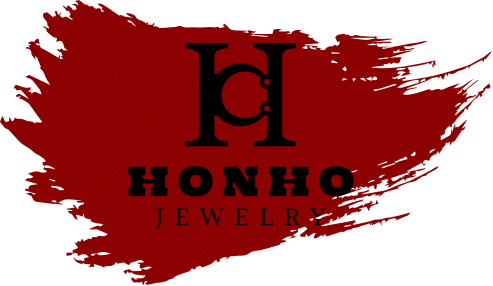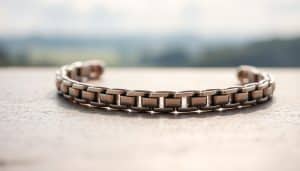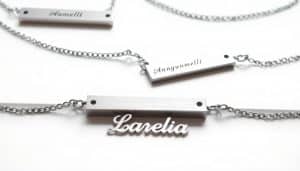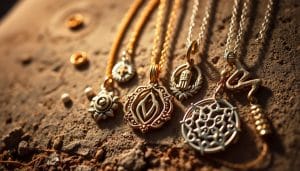Custom Jewelry Manufacturers: Crafting Unique Pieces
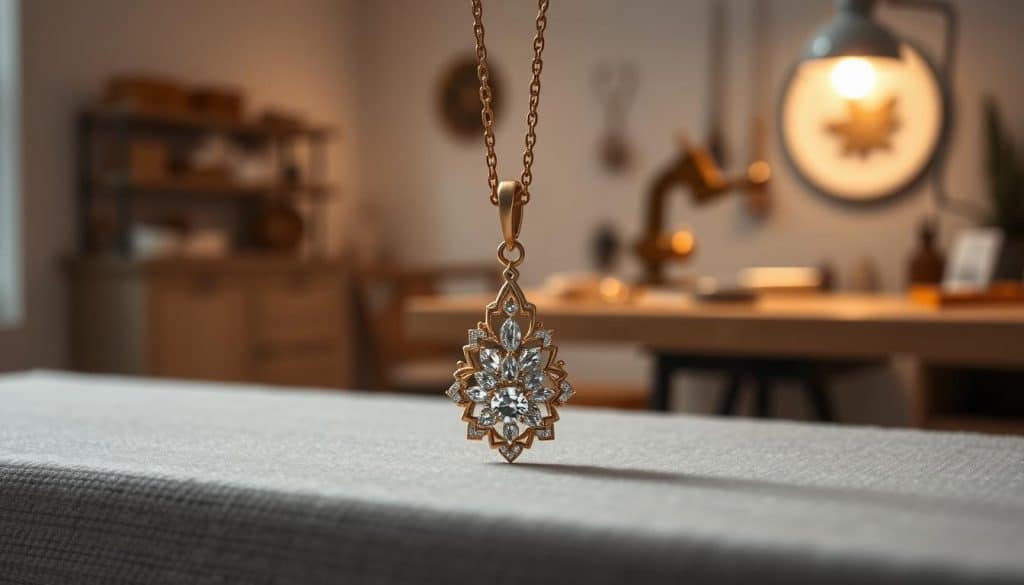
Custom Jewelry Manufacturers: Crafting Unique Pieces
As luxury jewelry manufacturers, we combine advanced technology and artisanal craftsmanship to deliver premium quality pieces that captivate our customers. Our expertise in bespoke jewelry design enables us to create unique, high-quality jewelry that stands out in the market.
By leveraging cutting-edge technology and traditional craftsmanship, we produce exquisite pieces that exceed our customers’ expectations. Our commitment to quality, innovation, and customer satisfaction drives us to continually push the boundaries of jewelry making.
Key Takeaways
- Combining advanced technology with artisanal craftsmanship to deliver premium quality jewelry.
- Expertise in bespoke jewelry design to create unique pieces.
- Commitment to quality, innovation, and customer satisfaction.
- Use of cutting-edge technology to enhance traditional jewelry making techniques.
- Focus on delivering exceptional customer experiences.
The Art of Custom Jewelry Manufacturing
In the realm of custom jewelry, every piece tells a story, crafted with precision and passion. Custom jewelry manufacturing is a nuanced art that requires a deep understanding of both traditional techniques and modern technologies. At its core, it’s about creating unique, meaningful pieces that resonate with the wearer.
What Sets Custom Jewelry Apart from Mass-Produced Pieces
Custom jewelry stands out from mass-produced pieces due to its uniqueness and personal touch. Unlike generic jewelry that is produced in large quantities, custom jewelry is tailored to the individual’s preferences, making each piece truly one-of-a-kind. This uniqueness is achieved through a collaborative process between the client and the custom jewelry makers, ensuring that the final product reflects the client’s vision and style.
The process involves several key steps, including initial consultations, design development, prototyping, and production. For instance, Bamina Jewelry guides clients seamlessly through these stages, ensuring that the client’s vision becomes a reality. This personalized approach not only results in a piece that is aesthetically pleasing but also emotionally significant.
| Feature | Custom Jewelry | Mass-Produced Jewelry |
|---|---|---|
| Uniqueness | One-of-a-kind, tailored to individual preferences | Produced in large quantities, identical pieces |
| Design Process | Collaborative, involving client input at multiple stages | Pre-designed, no client input |
| Emotional Value | High, due to personal significance and uniqueness | Lower, as it’s a common, mass-produced item |
The Evolution of Bespoke Jewelry Creation in America
The art of bespoke jewelry creation in America has evolved significantly over the years. From traditional handcrafting techniques to the incorporation of modern technologies like CAD/CAM and 3D printing, bespoke jewelry makers have continuously innovated to meet the changing demands of clients. This evolution has not only enhanced the quality and precision of custom jewelry but has also expanded the possibilities for design complexity and creativity.
Today, artisan jewelry manufacturers in the United States are at the forefront of this evolution, blending traditional craftsmanship with cutting-edge technology. This blend of old and new techniques allows for the creation of intricate, high-quality pieces that are both visually stunning and emotionally resonant.
Benefits of Working with Bespoke Jewelry Manufacturers
Partnering with bespoke jewelry manufacturers allows individuals to own truly unique pieces that not only showcase their personal style but also support ethical and sustainable practices in the jewelry industry. We recognize the value of working closely with skilled artisans who can bring a client’s vision to life.
Expressing Personal Style Through Tailored Designs
Bespoke jewelry manufacturers offer the advantage of creating pieces that are tailored to an individual’s style and preferences. This personalized approach ensures that the final product is not only beautiful but also meaningful to the wearer. Some key benefits include:
- Unique designs that reflect personal taste
- The ability to choose materials and gemstones that align with individual values
- A collaborative design process that ensures the final piece meets the client’s expectations
Creating Heirloom-Quality Pieces with Sentimental Value
Bespoke jewelry is often crafted with the intention of creating pieces that will be treasured for generations. By working closely with bespoke jewelry manufacturers, clients can create heirloom-quality pieces that hold sentimental value. This is achieved through:
- Using high-quality materials that stand the test of time
- Incorporating personal elements or symbols into the design
- Crafting each piece with meticulous attention to detail
For instance, a custom-designed engagement ring can become a family heirloom, passed down through generations, symbolizing the love and commitment it represents.
Ensuring Ethical Sourcing and Sustainable Production
In today’s jewelry market, consumers are increasingly concerned about the ethical and environmental impact of their purchases. Sustainable jewelry practices are becoming more prevalent, with many custom jewelry artisans adopting environmentally friendly methods. We work with manufacturers who prioritize:
- Ethical sourcing of materials, such as Fairmined certified metals
- Sustainable production methods that minimize environmental impact
- Transparency throughout the supply chain
A notable example is Malleable, a Canadian jeweler that adheres to the highest sustainability standards by using Fairmined certified metal and ethically traded gemstones. By choosing to work with such bespoke jewelry manufacturers, consumers can ensure that their jewelry is not only beautiful but also responsibly sourced.
Leading Custom Jewelry Manufacturers in the United States
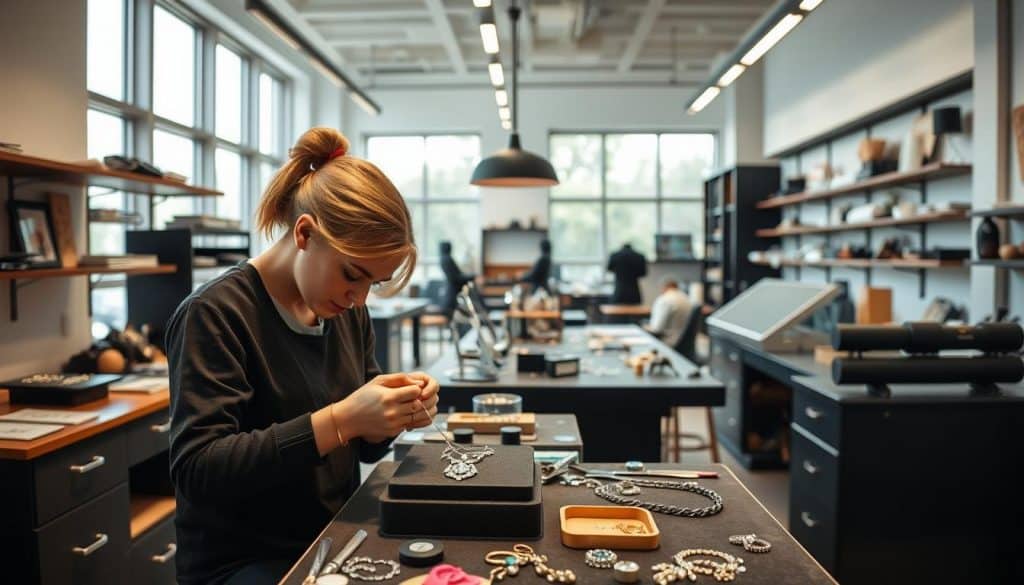
The United States is home to a diverse range of custom jewelry manufacturers, from skilled artisans to large-scale production companies. These manufacturers cater to various needs, from bespoke, one-of-a-kind pieces to larger orders for retailers.
Artisan Jewelry Makers and Independent Craftspeople
Artisan jewelry makers and independent craftspeople are the backbone of the custom jewelry industry in the U.S. These skilled individuals often work alone or in small teams, bringing a personal touch to each piece they create. Jedco Ltd, a Canadian custom jewelry manufacturer, although not based in the U.S., serves as an example of a long-standing business (over 70 years) that offers bespoke jewelry design and manufacturing services, illustrating the kind of expertise and dedication found among top-tier artisans.
Characteristics of artisan jewelry makers include:
- Handcrafted pieces with attention to detail
- Unique designs that reflect the artisan’s style
- Direct communication with clients to understand their vision
- Flexibility in design and production processes
Mid-Size Custom Jewelry Studios
Mid-size custom jewelry studios represent a significant segment of the U.S. custom jewelry manufacturing landscape. These studios typically employ a team of skilled jewelers and designers, allowing them to take on a variety of projects simultaneously.
Mid-size studios often offer:
- A broader range of design capabilities due to their team structure
- More resources for prototyping and production
- The ability to handle larger orders while still maintaining a level of customization
- A balance between the personal touch of smaller artisans and the efficiency of larger companies
Large-Scale Custom Jewelry Production Companies
Large-scale custom jewelry production companies are equipped to handle significant orders and often work with retailers or designers who require substantial quantities of custom pieces. These companies leverage advanced technology, such as CAD/CAM software and 3D printing, to efficiently produce high-quality jewelry.
Key features of large-scale custom jewelry production companies include:
- Advanced manufacturing technologies for precision and consistency
- Economies of scale that can reduce costs per unit
- The capacity to fulfill large and complex orders
- Often, a more formalized design and sales process
The Custom Jewelry Design Process Explained
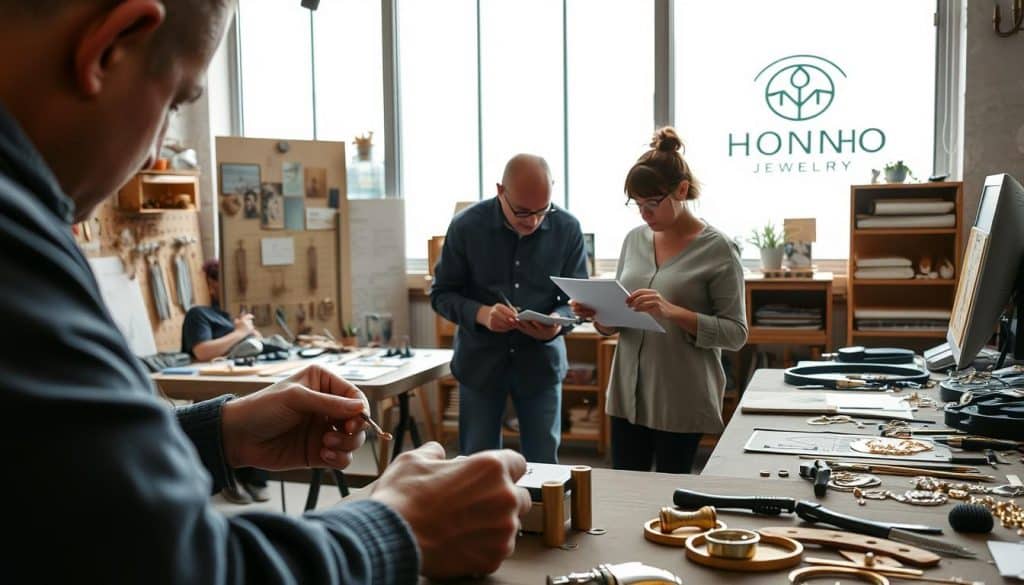
At the heart of custom jewelry manufacturing lies a precise design process that brings unique ideas to life. We, as experienced craftsmen, understand that creating bespoke jewelry involves more than just technical skills; it requires a deep understanding of the client’s vision and preferences.
Initial Consultation and Concept Development
The journey begins with an initial consultation, where we work closely with clients to understand their concept, preferences, and budget. This stage is crucial as it sets the foundation for the entire project. During this phase, we discuss various aspects such as the type of jewelry, preferred materials, and any specific design elements the client wishes to include.
Our team then develops a conceptual design based on the information gathered during the consultation. This involves creating a preliminary sketch or digital rendering that captures the essence of the client’s vision.
Sketching and Digital Rendering
Once the concept is developed, we proceed to create detailed sketches or digital renderings of the proposed design. This step allows us to visualize the piece and make any necessary adjustments before moving forward. At Bamina Jewelry, for instance, we utilize 3D modeling to create a precise representation of the final product, ensuring that it meets the client’s expectations.
The digital rendering phase is iterative, involving review and feedback loops with the client to ensure that the design is on track and meets their requirements.
Prototype Creation and Refinement
After finalizing the design, we create a prototype of the jewelry piece. This tangible representation allows clients to see and feel the design, making it easier to identify any areas that may need refinement. The prototype is crafted using the chosen materials and techniques, providing a realistic preview of the final product.
Based on the client’s feedback, we refine the prototype, making any necessary adjustments to achieve the desired outcome. This collaborative process ensures that the final piece is not only beautiful but also meets the client’s specifications.
By understanding and following this meticulous design process, we can create truly unique and personalized jewelry pieces that resonate with our clients.
Materials Used by Premium Custom Jewelry Makers
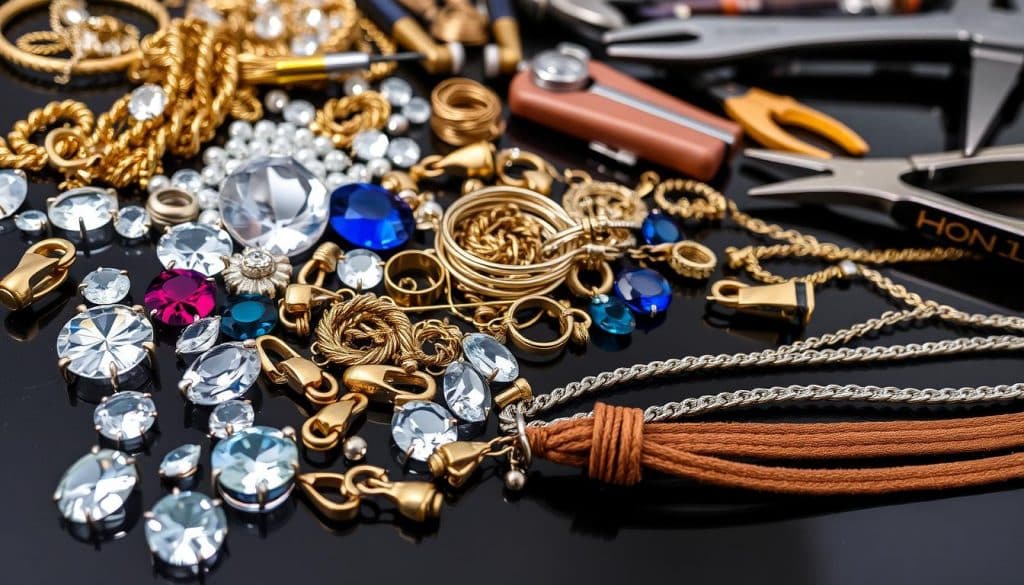
Custom jewelry designers work with various materials, from traditional precious metals to innovative sustainable options. The choice of material is crucial as it not only affects the aesthetic appeal of the piece but also its durability and value.
Precious Metals: Gold, Silver, and Platinum
Precious metals form the backbone of most custom jewelry pieces. Gold, available in various karat weights, is prized for its warmth and malleability. We often use 14k and 18k gold in our designs, offering a balance between durability and purity. Silver, particularly sterling silver, is another popular choice due to its affordability and versatility. For high-end pieces, platinum is favored for its strength, rarity, and lustrous finish.
Gemstones: From Diamonds to Unique Alternatives
Gemstones add color, brilliance, and personality to custom jewelry. While diamonds remain a classic choice, many clients are now opting for colored gemstones like sapphires, rubies, and emeralds. We also incorporate unique alternatives such as moissanite and lab-grown gemstones, which offer ethical and budget-friendly options without compromising on beauty.
Alternative and Sustainable Materials in Modern Custom Jewelry
The trend towards sustainability has led to the incorporation of alternative materials in custom jewelry. We use Fairmined certified metals and ethically traded gemstones, ensuring that our pieces not only shine but also contribute to responsible sourcing practices. Additionally, materials like recycled metals and conflict-free diamonds are becoming increasingly popular among environmentally conscious consumers.
By combining traditional craftsmanship with modern, eco-friendly materials, we create custom jewelry that is both beautiful and sustainable. Our commitment to using sustainable materials reflects our dedication to quality and environmental responsibility.
Advanced Techniques in Custom Jewelry Production
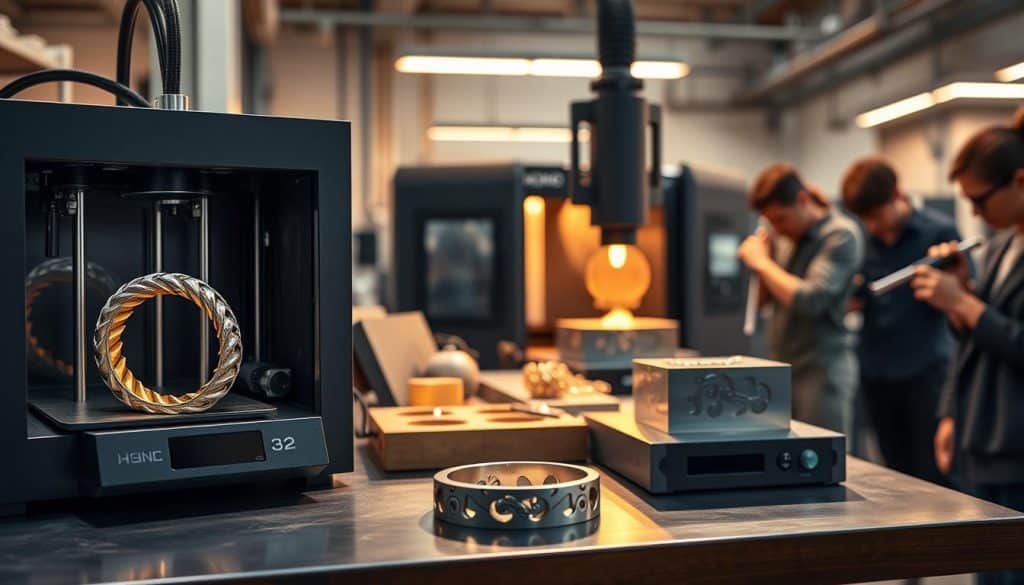
Advanced techniques in custom jewelry production have transformed the industry, offering unparalleled precision and creativity. At Jedco Ltd, we leverage a combination of traditional craftsmanship and modern technology to create exquisite custom jewelry pieces.
Traditional Handcrafting Methods
Despite the advancements in technology, traditional handcrafting methods remain at the heart of custom jewelry production. Skilled artisans continue to play a crucial role in crafting unique pieces that require a human touch. Techniques such as hand-engraving, soldering, and stone-setting are still widely used, allowing for the creation of intricate designs that are both beautiful and durable.
Handcrafting enables jewelry makers to infuse their creations with a personal touch, making each piece truly one-of-a-kind. This traditional approach also allows for flexibility and adaptability during the design process, ensuring that the final product meets the client’s expectations.
CAD/CAM Technology in Modern Jewelry Design
The integration of CAD/CAM technology has revolutionized the custom jewelry design process. We use CAD files, PDF files, and hand-drawn drawings to create custom jewelry designs. CAD software allows designers to create precise digital models of jewelry pieces, which can then be refined and modified with ease. This technology enables the production of complex designs that would be challenging to achieve through traditional methods alone.
CAM technology takes the digital design to the next level by controlling the manufacturing process. It allows for the precise cutting and shaping of materials, reducing waste and improving overall efficiency. The combination of CAD/CAM technology has streamlined the production process, enabling faster turnaround times without compromising on quality.
3D Printing and Its Impact on Custom Jewelry Manufacturing
3D printing has emerged as a game-changer in custom jewelry manufacturing. This technology allows for the rapid production of complex designs with intricate details. By creating wax or resin models, 3D printing enables the production of castable patterns for jewelry, reducing the time and cost associated with traditional wax carving.
The use of 3D printing in custom jewelry production also opens up new possibilities for design innovation. It allows designers to experiment with complex geometries and structures that would be difficult or impossible to produce using conventional methods. As 3D printing technology continues to evolve, we can expect to see even more sophisticated and intricate jewelry designs.
By embracing both traditional handcrafting methods and advanced technologies like CAD/CAM and 3D printing, we at Jedco Ltd are able to offer a comprehensive range of custom jewelry production services. Our ability to combine these techniques allows us to cater to a wide range of client preferences, from those seeking traditional craftsmanship to those looking for cutting-edge designs.
How to Choose the Right Custom Jewelry Manufacturers
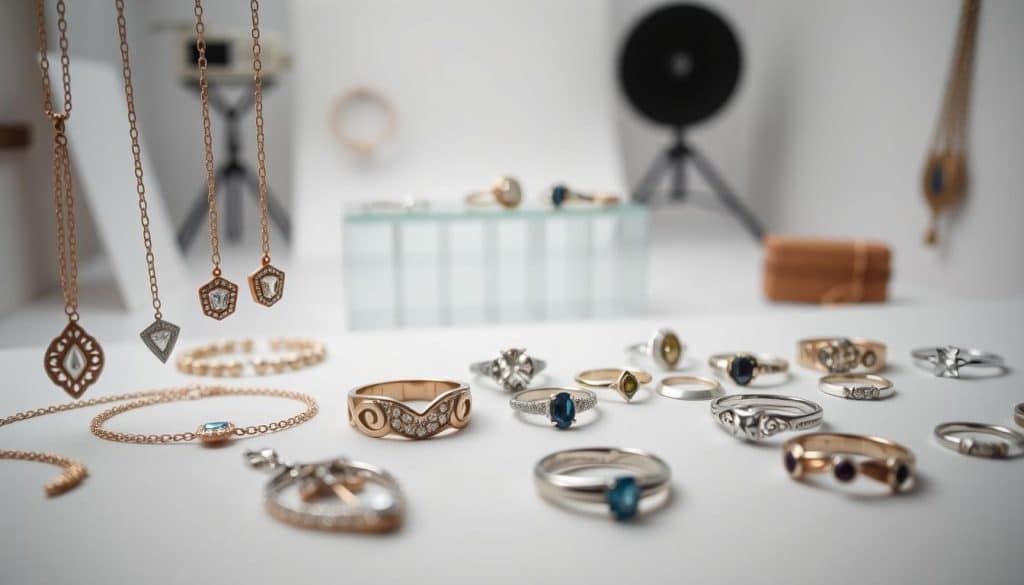
The process of finding the perfect custom jewelry manufacturer involves careful consideration of several key factors. When you’re looking to bring your unique jewelry designs to life, the manufacturer you choose plays a crucial role in the final product’s quality and aesthetic appeal.
At Bamina Jewelry, we emphasize the importance of clear communication and transparency throughout the design and production process. This ensures that our clients receive exactly what they envisioned.
Evaluating a Manufacturer’s Portfolio and Expertise
When evaluating custom jewelry manufacturers, their portfolio is a crucial indicator of their capabilities. Look for:
- Diversity in designs: A wide range of styles indicates versatility and a broader skill set.
- Quality of craftsmanship: Examine the details and finish of the pieces in their portfolio.
- Experience with various materials: Manufacturers who have worked with different metals and gemstones may offer more innovative solutions.
Understanding Their Design and Production Capabilities
It’s essential to understand the manufacturer’s design and production capabilities to ensure they can meet your specific needs. Consider the following:
- Design flexibility: Can they accommodate custom designs, or are they limited to pre-existing templates?
- Production techniques: Are they using traditional handcrafting methods, modern CAD/CAM technology, or a combination of both?
- Material sourcing: Do they offer a range of materials, including sustainable options?
“The right manufacturer should be able to translate your vision into a tangible piece of jewelry, offering guidance on materials and design elements while respecting your original concept.”
Reading Reviews and Seeking Recommendations
One of the most effective ways to gauge a custom jewelry manufacturer’s reliability and quality is by reading reviews and seeking recommendations. Look for feedback on:
- Communication: How responsive are they to inquiries and updates?
- Timeliness: Do they meet their production deadlines?
- Quality of final product: Does the finished jewelry meet the client’s expectations?
By carefully evaluating these aspects, you can make an informed decision when choosing a custom jewelry manufacturer that aligns with your needs and expectations.
Pricing Factors in Made-to-Order Jewelry Manufacturing
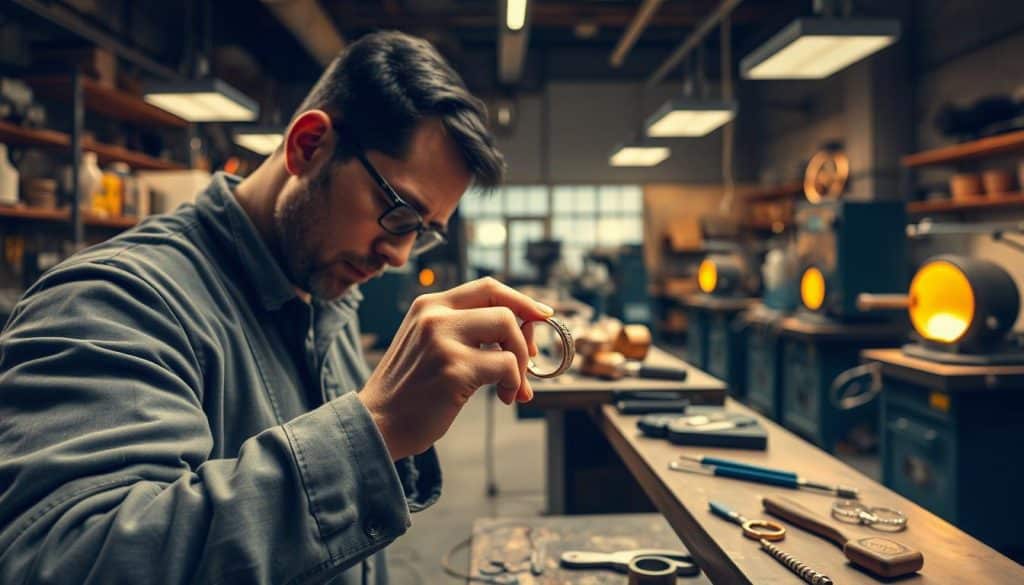
Custom jewelry pricing involves a complex interplay of material costs, design complexity, and production timelines. Understanding these factors is essential for both manufacturers and clients to navigate the process effectively.
Material Costs and Quality Considerations
The cost of materials is a significant factor in determining the price of custom jewelry. Precious metals like gold, silver, and platinum vary in price based on market fluctuations. The quality and type of gemstones or diamonds used also greatly impact the overall cost. We consider the quality, rarity, and source of these materials when calculating the final price.
For instance, using conflict-free diamonds or sustainably sourced metals can affect pricing. Here’s a breakdown of how different materials influence the cost:
| Material | Cost Factor | Quality Consideration |
|---|---|---|
| Gold | Market price fluctuations | Purity (e.g., 14k, 18k) |
| Diamonds | Carat, cut, and clarity | Conflict-free sourcing |
| Platinum | Rarity and density | Purity and craftsmanship |
Design Complexity and Labor Requirements
The complexity of the design directly affects the labor required to produce the piece, thereby influencing the final cost. Intricate designs or those requiring specialized skills demand more time and expertise, increasing the price. We work closely with clients to balance their design aspirations with budget considerations.
Production Timeline and Rush Fees
The production timeline is another critical factor in pricing. Expedited or rush orders often incur additional fees due to the prioritization of production and potential overtime labor costs. We provide clients with detailed production timelines and associated costs to manage expectations.
By understanding these pricing factors, clients can better navigate the custom jewelry manufacturing process and make informed decisions about their purchases.
The Collaboration Process with Personalized Jewelry Manufacturers

When working with personalized jewelry manufacturers, the collaboration process is key to bringing your unique vision to life. This process involves several critical stages that ensure the final product meets your expectations and exceeds your imagination.
Communicating Your Vision Effectively
Effective communication is the foundation of a successful collaboration. To convey your ideas clearly, consider the following steps:
- Prepare visual references or sketches of your design concept
- Clearly articulate your preferences for materials, gemstones, and style
- Discuss your budget and timeline expectations upfront
By providing comprehensive information at the outset, you enable the personalized jewelry manufacturers to understand your needs accurately and develop a tailored approach to your project.
Navigating Design Revisions and Feedback
The collaboration process inherently involves iterations and refinements. As you review initial designs or prototypes, you may have feedback or wish to make adjustments. Personalized jewelry manufacturers typically welcome this feedback as an opportunity to refine the piece to your exact specifications.
To navigate design revisions effectively:
- Be specific about your feedback, focusing on particular aspects of the design
- Understand that some revisions may impact the production timeline or cost
- Maintain open dialogue to ensure that your vision is being realized
Approval Processes and Production Timelines
Once you’re satisfied with the final design, the production phase begins. Reputable personalized jewelry manufacturers implement rigorous quality control measures throughout the production process.
Understanding the production timeline is crucial for planning. Factors influencing production time include:
- Complexity of the design
- Availability of materials and gemstones
- Manufacturer’s current workload and production capacity
By maintaining a collaborative relationship with your chosen personalized jewelry manufacturers, you can ensure that your custom piece is crafted to the highest standards and delivered within the agreed-upon timeframe.
Quality Control Standards Among Custom Jewelry Manufacturers
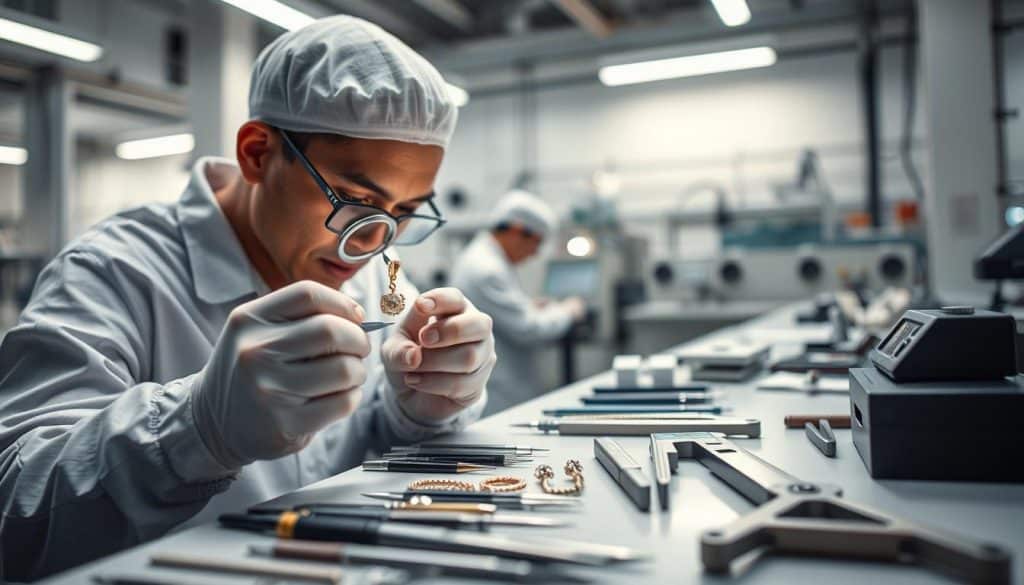
Custom jewelry manufacturers adhere to stringent quality control standards to ensure the creation of flawless, bespoke pieces. Professional jewelers understand that quality is not just about meeting expectations but exceeding them.
Data from industry leaders indicates that professional jewelers do not sell gold jewelry that has not been subjected to stringent quality controls. This commitment to quality is what sets reputable custom jewelry manufacturers apart.
Industry Certifications and Hallmarking
Industry certifications play a crucial role in verifying the quality and authenticity of custom jewelry. Certifications from recognized organizations serve as a mark of excellence, assuring customers of the piece’s quality and value. Hallmarking, a process that involves marking precious metal items with stamps indicating their metal content, is another critical aspect of quality control.
For instance, hallmarking ensures that gold jewelry meets specific standards of purity, such as 14k or 18k. This not only helps in maintaining transparency but also builds trust between the manufacturer and the customer.
Inspection Processes and Quality Guarantees
Rigorous inspection processes are integral to maintaining high-quality standards in custom jewelry manufacturing. Manufacturers employ various techniques, including microscopic examination and structural integrity tests, to ensure that each piece meets the required standards.
Furthermore, reputable custom jewelry manufacturers offer quality guarantees, standing behind the craftsmanship and materials used in their creations. This guarantee not only protects the customer’s investment but also underscores the manufacturer’s confidence in their work.
In conclusion, the quality control standards among custom jewelry manufacturers are multifaceted, involving industry certifications, hallmarking, and rigorous inspection processes. By adhering to these standards, manufacturers can ensure the production of high-quality, bespoke jewelry that meets the expectations of their discerning clientele.
Popular Styles and Trends in Custom Jewelry Design
As we explore the realm of custom jewelry, we find that current trends are heavily influenced by vintage designs and cultural symbolism. The industry is witnessing a diverse range of styles, from classic heirloom redesigns to minimalist contemporary pieces.
Vintage-Inspired and Heirloom Redesigns
Vintage-inspired jewelry continues to captivate customers, with many seeking to recreate or repurpose antique pieces. We see a growing trend in heirloom redesigns, where family treasures are reimagined into modern, wearable art. This approach not only preserves sentimental value but also allows for the creation of unique, one-of-a-kind pieces.
For instance, Malleable’s latest designs are inspired by nature, astronomy, and materials themselves, showcasing the versatility of custom jewelry design. By incorporating vintage elements into contemporary designs, we create pieces that are both nostalgic and cutting-edge.
Minimalist and Contemporary Custom Pieces
On the opposite end of the spectrum, minimalist and contemporary custom jewelry is gaining popularity. These designs focus on clean lines, simple shapes, and understated elegance. Our customers appreciate the subtle sophistication that minimalist pieces bring to their everyday attire.
Contemporary custom jewelry often incorporates innovative materials and techniques, pushing the boundaries of traditional jewelry making. By leveraging advanced technologies like 3D printing and CAD/CAM design, we can create intricate, complex designs that were previously impossible to produce.
Cultural and Symbolic Custom Jewelry
Cultural and symbolic custom jewelry is another significant trend in the industry. Many customers seek pieces that reflect their heritage, personal beliefs, or cultural identity. By incorporating symbolic elements or motifs inspired by various cultures, we create jewelry that not only adorns but also tells a story.
For example, some clients request custom pieces featuring specific gemstones or metals that hold cultural significance. Others may ask us to incorporate traditional designs or patterns into their jewelry, blending heritage with modern aesthetics.
Business Aspects of Working with Custom Jewelry Manufacturers
As we delve into the world of bespoke jewelry, it’s essential to examine the business aspects that underpin successful collaborations with custom manufacturers. When working with custom jewelry manufacturers, several key business elements come into play to ensure a smooth and successful partnership.
Contracts and Agreements: What to Expect
When engaging with a custom jewelry manufacturer, a comprehensive contract is vital. This document outlines the scope of work, timelines, costs, and responsibilities of both parties. At Bamina Jewelry, for instance, clear contracts and agreements are emphasized to protect both the client and the manufacturer.
- Scope of work and project timeline
- Payment terms and schedules
- Design ownership and intellectual property rights
- Confidentiality agreements
Having a detailed contract in place helps prevent misunderstandings and ensures that all parties are on the same page throughout the manufacturing process.
Intellectual Property Rights in Custom Designs
Intellectual property rights are a critical consideration when working with custom jewelry manufacturers. These rights determine who owns the design and how it can be used.
| Aspect | Description |
|---|---|
| Design Ownership | Typically, the client owns the design once it’s been paid for. |
| Usage Rights | Manufacturers may retain the right to use the design for promotional purposes. |
Understanding these rights is crucial to protect your investment and ensure that your custom piece is not reproduced without your consent.
Warranties and After-Sale Services
Warranties and after-sale services are essential components of the business aspect of custom jewelry manufacturing. Reputable manufacturers offer warranties that cover defects in materials and workmanship.
- Duration of warranty
- Coverage details
- Maintenance and repair services
By understanding these business aspects, clients can better navigate the process of working with custom jewelry manufacturers, ensuring a successful and satisfying experience.
The Future of Bespoke Jewelry Manufacturing
The bespoke jewelry industry is on the cusp of a revolution, with advancements in technology and a growing emphasis on sustainability set to redefine the landscape. As we move forward, it’s clear that the intersection of innovation and eco-consciousness will drive the industry’s evolution.
Technological Innovations Shaping the Industry
Technological advancements are transforming the bespoke jewelry manufacturing process. One significant development is the use of Computer-Aided Design (CAD) software, which allows for precise and intricate designs that can be easily modified and refined. Additionally, 3D printing technology has revolutionized the production of complex jewelry pieces, enabling the creation of detailed designs with greater speed and accuracy.
Another area of innovation is the use of lab-grown diamonds, which are redefining fine jewelry by offering a sustainable alternative to traditional diamonds. These diamonds are chemically, optically, and physically identical to mined diamonds but have a significantly lower environmental impact. The integration of such technologies not only enhances the design and production process but also caters to the growing consumer demand for sustainable and responsibly sourced jewelry.
Sustainability Trends in Custom Jewelry Production
Sustainability is becoming increasingly important in the bespoke jewelry industry. Consumers are now more than ever concerned about the environmental and social impact of their purchases. In response, manufacturers are adopting sustainable practices, such as using recycled precious metals and sourcing gemstones from ethical suppliers.
The trend towards sustainability is also driving innovation in materials used for bespoke jewelry. Alternative materials, such as recycled silver and gold, are gaining popularity. Moreover, the use of conflict-free and eco-friendly gemstones is becoming a standard practice among reputable manufacturers.
Key sustainability trends include:
- Use of recycled precious metals
- Sourcing of conflict-free gemstones
- Adoption of eco-friendly production methods
- Increasing popularity of lab-grown diamonds
By embracing these trends, bespoke jewelry manufacturers can not only reduce their environmental footprint but also appeal to the growing demographic of eco-conscious consumers. As the industry continues to evolve, it’s likely that sustainability will remain a core focus, driving further innovations and changes in manufacturing practices.
Conclusion
As we have explored throughout this article, custom jewelry manufacturers play a vital role in crafting unique, bespoke jewelry pieces that cater to individual tastes and preferences. By prioritizing sustainability and quality control, these manufacturers deliver premium quality jewelry that not only meets but exceeds customer expectations.
We have seen how the collaboration process with personalized jewelry manufacturers involves effective communication, design revisions, and feedback. This ensures that the final product is a true reflection of the customer’s vision. With the integration of advanced technologies such as CAD/CAM and 3D printing, custom jewelry manufacturers can now produce intricate designs with precision and accuracy.
As the jewelry industry continues to evolve, we can expect to see a greater emphasis on sustainability and eco-friendliness. Custom jewelry manufacturers are well-positioned to lead this charge, using environmentally responsible practices and sourcing materials from certified suppliers. By choosing to work with a reputable custom jewelry manufacturer, customers can be confident that their bespoke jewelry is not only beautiful but also sustainably produced.
FAQ
What distinguishes custom jewelry manufacturers from mass-produced jewelry makers?
How do bespoke jewelry manufacturers ensure sustainability and ethics in their production processes?
What are the benefits of working with artisan jewelry makers versus large-scale custom jewelry production companies?
How do custom jewelry manufacturers determine pricing for made-to-order pieces?
What role does CAD/CAM technology play in modern custom jewelry manufacturing?
How can I ensure the quality of custom jewelry manufactured by a particular company?
What are the current trends in custom jewelry design, and how can I incorporate them into my bespoke piece?
How do custom jewelry manufacturers protect intellectual property rights for custom designs?
What is the typical production timeline for custom jewelry, and how can I plan accordingly?
Can custom jewelry manufacturers work with alternative and sustainable materials?
Related Posts
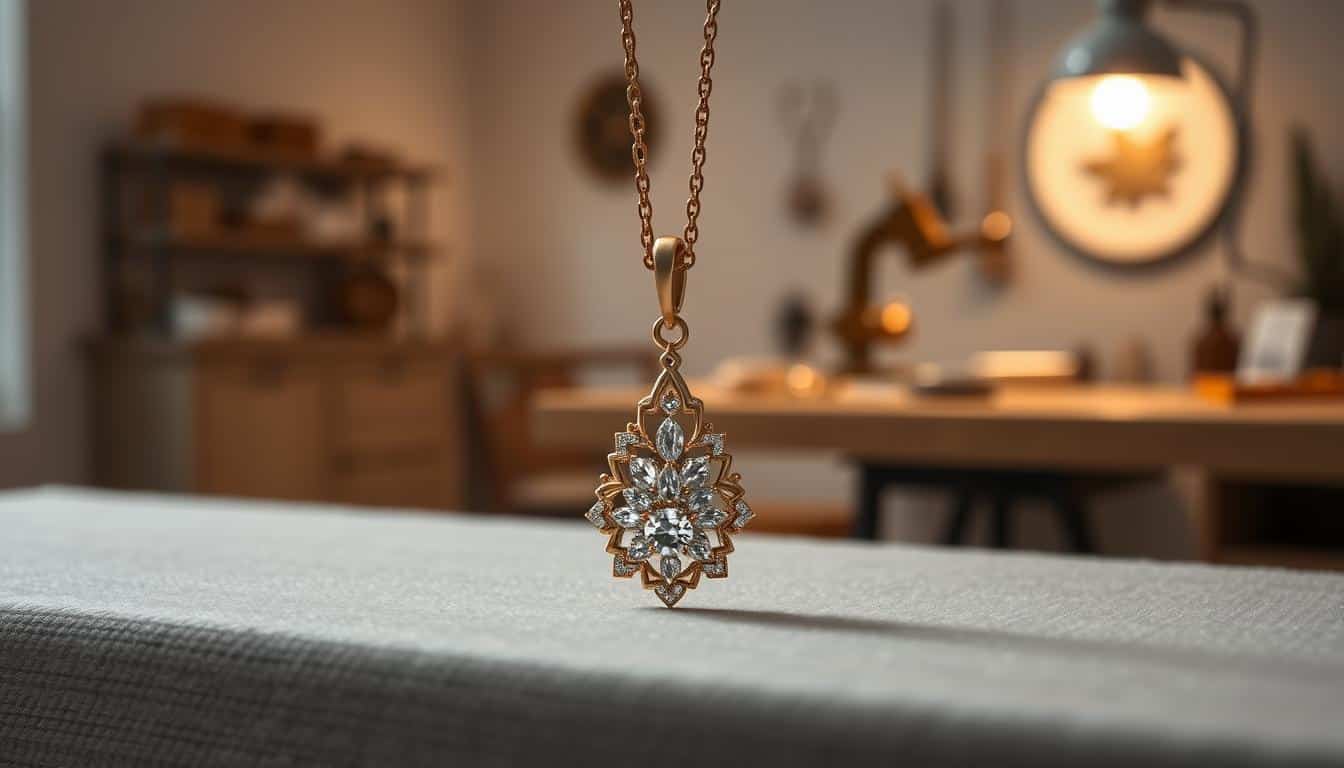
Custom Jewelry Manufacturers: Crafting Unique Pieces
As luxury jewelry manufacturers, we combine advanced technology and artisanal craftsmanship to deliver premium quality pieces that captivate our customers. Our expertise in bespoke jewelry
